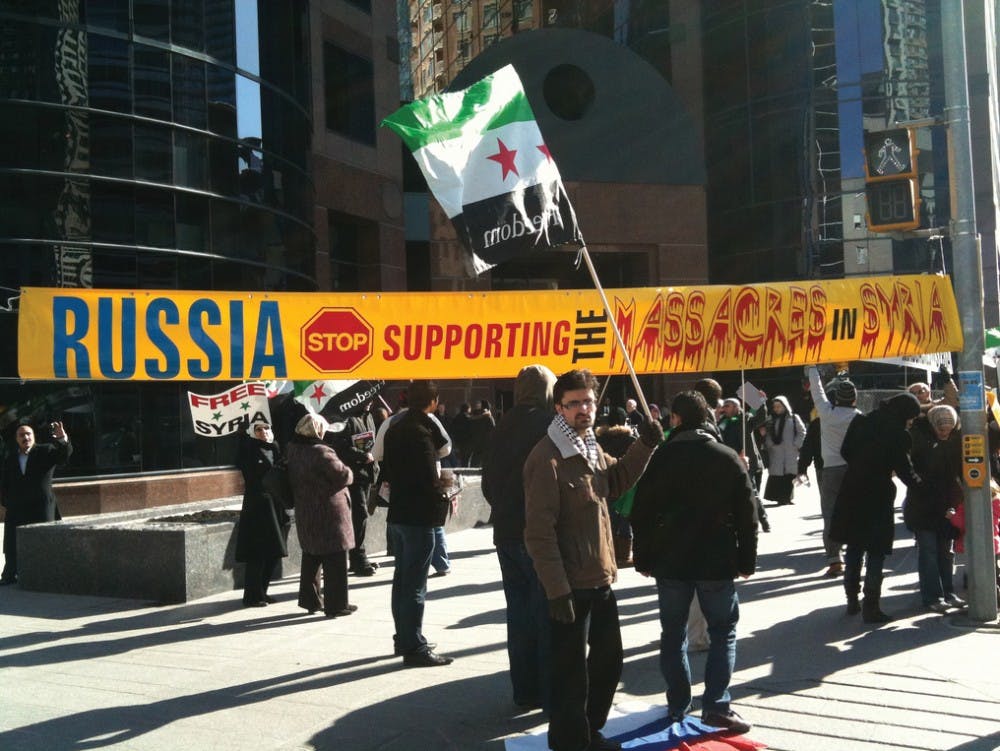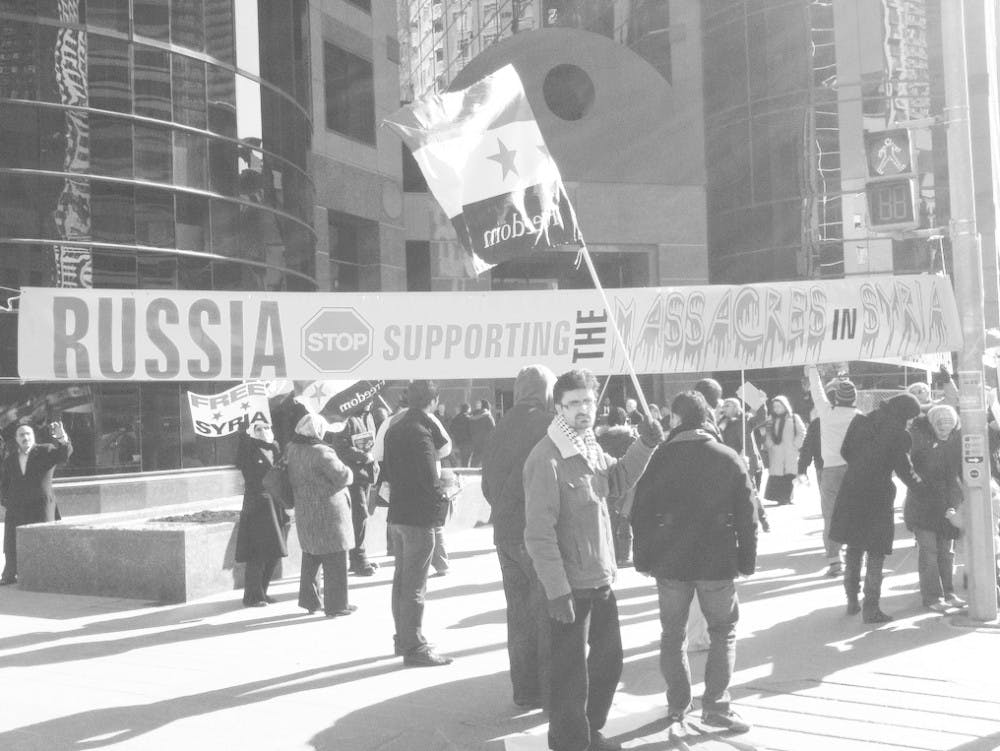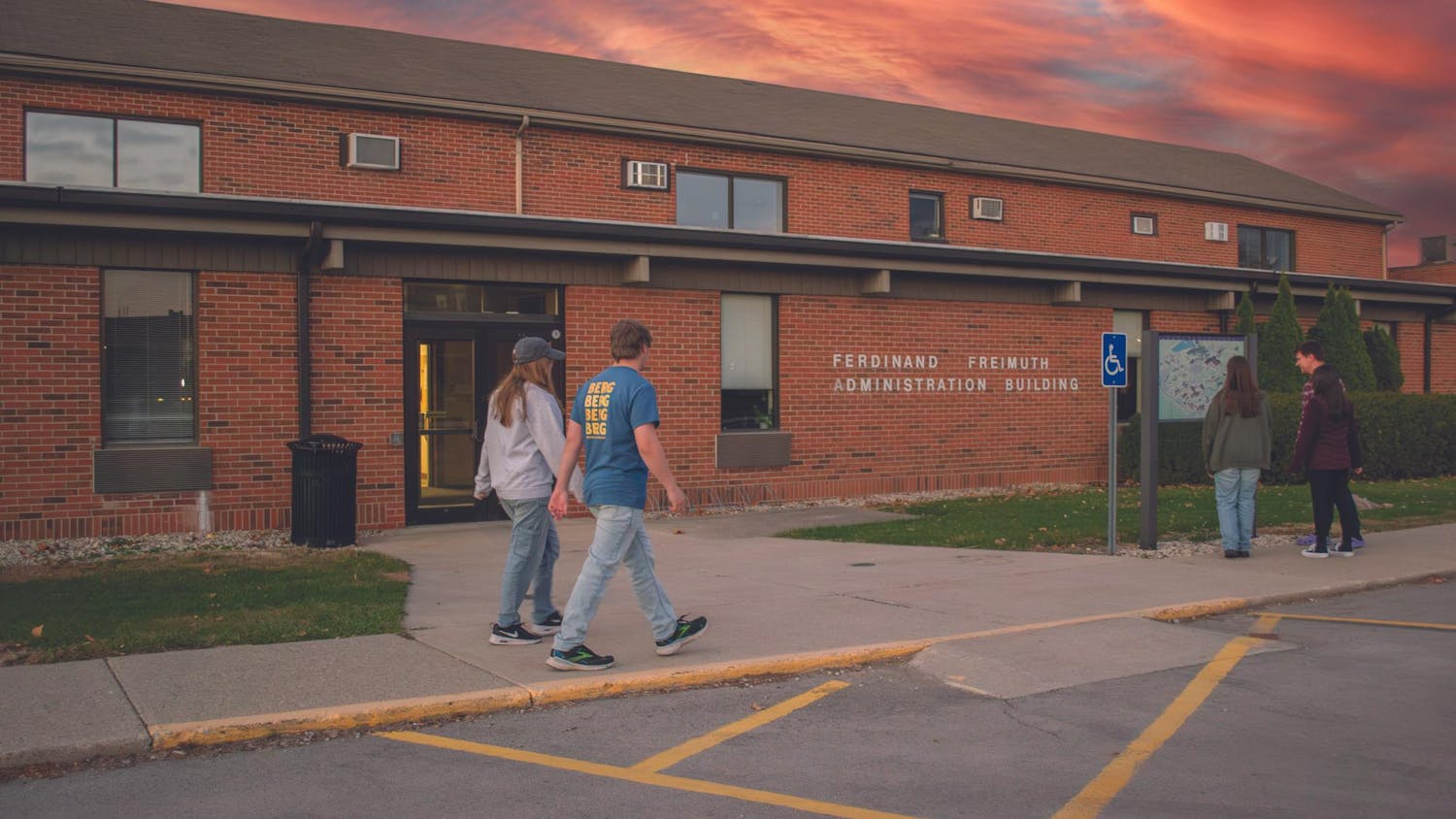By Tom Gbean | Echo

Russia rushes into Syria with questionable heavy armament and artillery while immigrants flood into Europe from the Middle East to seek refuge from war and persecution. Its most recent influx of military equipment caused the U.S. to take notice.
Moscow has previously provided both military and nonmilitary assistance to Syria's President Bushar Al-Assad. At the start of the Syrian civil war, Russia supported Assad politically in order to prevent terrorist groups from gaining power over the Syrian government. In accordance with its policy, Russia provided arms and shared intelligence with the Syrian government. When Islamic State of Iraq and Levant (ISIS) gained ground in Iraq, Russia quickly dispensed ground-attack fighter jets and other weapons to Syria.
Non-militarily, Russia has helped Syria through actions such as the 2012 agreement to exchange Syrian crude oil for Russia's refined petroleum products and regular diplomatic support, including multiple U.N. Security Council vetoes to shield Syria from further U.N. pressure. Syria has also sought offshore banking services that would allow it to continue international financial programs in the face of Western sanctions.
The U.S. believes that Russia is doing more than simply providing aid to Syria. Reuters reported that Captain Jeff Davis, the Pentagon spokesman, said that Russia's recent movements indicate that they intend to use an airfield south of Latakia in Syria as an operating air base.
Russia has equipped the airbase with seven T-90 tanks, about 200 naval infantry soldiers, temporary housing units, a portable air traffic control station and components for an air defense system. Additionally, Moscow has been sending about two military cargo flights per day to the airfield during the past week.
Obama has been less than thrilled about Moscow's support for Assad and wants to see him step down from his presidency for multiple reasons.
Assad is known for collaborating with terrorist groups. From 2003 to 2011, Assad helped to escort Al Qaeda operatives from Syria to Iraq. Assad has also used Al Qaeda to aid in repressing protests against his own regime. ISIS, a group believed to stem from Al Qaeda, uses secured bases within Syria to launch attacks into Iraq.
The Obama administration promised to counteract the atrocities Assad has committed against his people and to battle the cruelties that ISIS is perpetrating across the Middle East.
On Sept. 23, 2014 President Obama delivered this statement: "The people and governments of the Middle East are rejecting ISIS, and standing up for the peace and security that the people of the world deserve. . .we will move forward with our plan-supported by bipartisan majorities in Congress-to ramp up our effort to train and equip the Syrian opposition, who are the best counterweight to ISIL and the Assad regime."
The U.S. has joined forces with Western powers such as Germany, Canada, the U.K. and the Netherlands to fight against Assad and ISIS. The coalition is also joined by middle Eastern states such as the United Arab Emirates and Qatar.
Western Coalition forces are using Syrian air space to launch attacks on ISIS in Syria. Russian presence in the area raises a concern for the U.S. since the U.S. might encounter Russian forces on the battlefield-a situation that may ignite tension of power struggle from the Cold War.
The U.S. and Russia's ideological differences increase the possibility that the two may clash on the battlefield. Vladimir Putin, Russia's president, objects to key components of Obama's anti-ISIS strategy. Currently, the Coalition forces' policy is to notify Assad of their activities within Syria, but Russia wants the Coalition to have to ask for Assad's permission to carry out operations. If the U.S. complies with Russia's wish, the U.S. would be affirming Assad's legitimacy even though they want him out of power. Moscow may also take steps to prevent the coalition forces from extending their bombardment of ISIS targets to targets belonging to the Assad regime.
The White House and Moscow may be able to put aside their differences. Both have a common enemy: ISIS. Putin tries to disparage fears of increasing military buildup. He assures the U.S. and other Western states that he only wants to help Syria.
Russia defends itself to the Western world and encourages its allies to continue aid to Syria.
In a meeting with heads of state from countries previously part of the Soviet Union, Putin reassured the states that they are supporting the Syrian government in the fight against ISIS. He also noted it would be impossible to expel the terrorists from Syria without the cooperation and the participation of the Syrian authorities and military. Putin believes his involvement in Syria has helped the situation.
The New York Times reported Putin saying, "If Russia had not supported Syria, the situation in this country would have been worse than in Libya, and the flood of refugees would have been even higher."
Despite Putin's defense of his military actions in Syria, the U.S. and other Western powers remain skeptical. Al Jazeera reports that U.S. Secretary of State John Kerry expressed concern for the situation in Syria worsening if Russia continues to support Assad. This came moments after Putin went on air defending the buildup of military armament in Syria.
The U.S. has welcomed Russian involvement in the fight against ISIS if they choose to be a part of the coalition, but Putin continues to remain evasive. When asked whether or not Russia would be a part of the coalition, President Putin remarked that he would consider all options.
Russia may be building up its military might in Syria, but it is doing so against the will of the U.S. and many other Western powers. CBS News Senior National Security Analyst Juan Zarate conveys the sentiments of the U.S.
"The U.S. isn't going away," he said. "The U.S. is going to apply its air power. It's going to continue to supply its forces. . . . So (Putin's) going to have to contend with a very messy environment."





